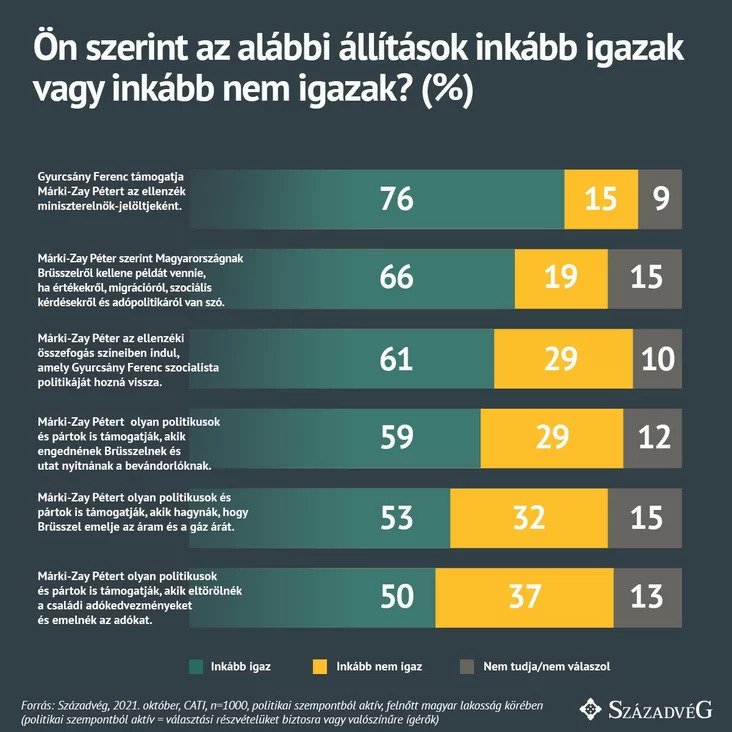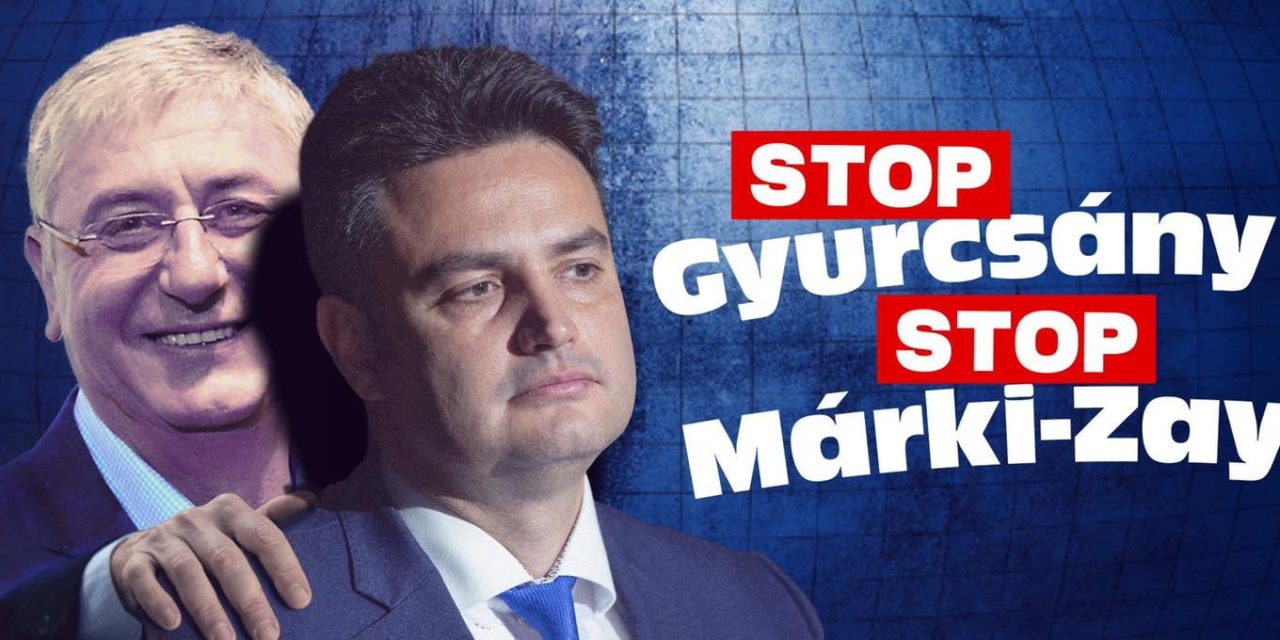The political identity of Péter Márki-Zay, the candidate for prime minister of the left, is difficult to define. While in recent years the mayor of Hódmezővásárhely has repeatedly voiced his "conservative" and "Christian" commitment, in his speech on October 23 he defended Ferenc Gyurcsány and György Soros.
In view of the question marks surrounding the political orientation of the left-liberal prime minister candidate, Századvég examined what Hungarians think - if he is elected - what kind of policy can be expected from Márki-Zay , especially in light of the fact that he enjoys the support of the left-wing coalition led by Gyurcsány.
The research shows that more than three-quarters (76 percent) of those surveyed believe that the former prime minister, Ferenc Gyurcsány, supports Péter Márki-Zay as the prime ministerial candidate of the opposition. In this context, 61 percent of Hungarians believe it is true that Márki-Zay will run in the 2022 parliamentary elections as an opposition coalition that would bring back the socialist policies of Ferenc Gyurcsány.

table: End of the century
The proportion of those who think that Péter Márki-Zay cannot be expected to "resurrect" left-wing politics in Gyurcsány can be put at 29 percent. A defining element of the left-liberal government before 2010 was the withdrawal of subsidies to Hungarian families, as well as the serial increase of public burdens affecting people and businesses. In light of this, it is not surprising that every second respondent (50 percent) is of the opinion that the mayor of Hódmezővásárhely is supported by politicians and parties who would abolish family tax benefits and increase the level of taxes.
After his victory in the primary election, Péter Márki-Zay clearly committed himself to the political line aimed at meeting the expectations of Brussels, followed for years by the Hungarian left.
In the light of the public opinion survey, it can be stated that the mentioned statement is in line with the opinion of the voters. Based on the survey, it can be established that two-thirds of Hungarians (66 percent) are convinced that, according to Márki-Zay, Hungary should take an example from Brussels in terms of values, migration, social issues, and tax policy. In addition, 59 percent of those surveyed believe that the statement that the left-wing prime minister candidate is supported by political forces that would open the way for immigrants if pressured by Brussels is true, while 29 percent of them believe that this does not correspond to reality. Similarly, 53 percent of the respondents assume that Péter Márki-Zay is supported by politicians and parties who would let Brussels raise the price of electricity and gas.
Source: End of the century












